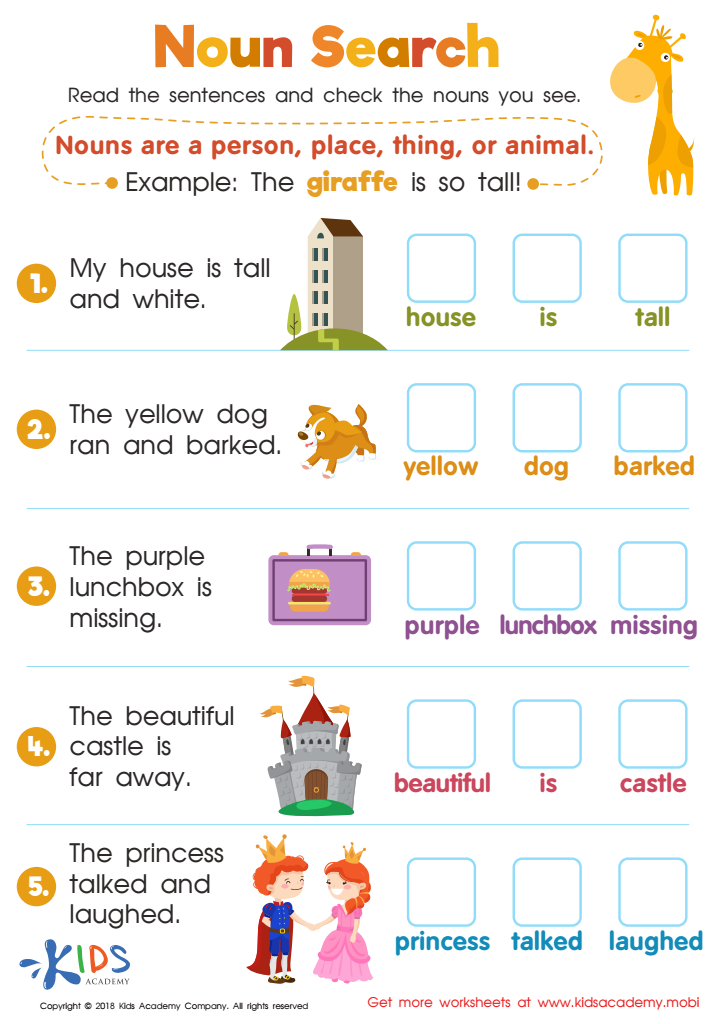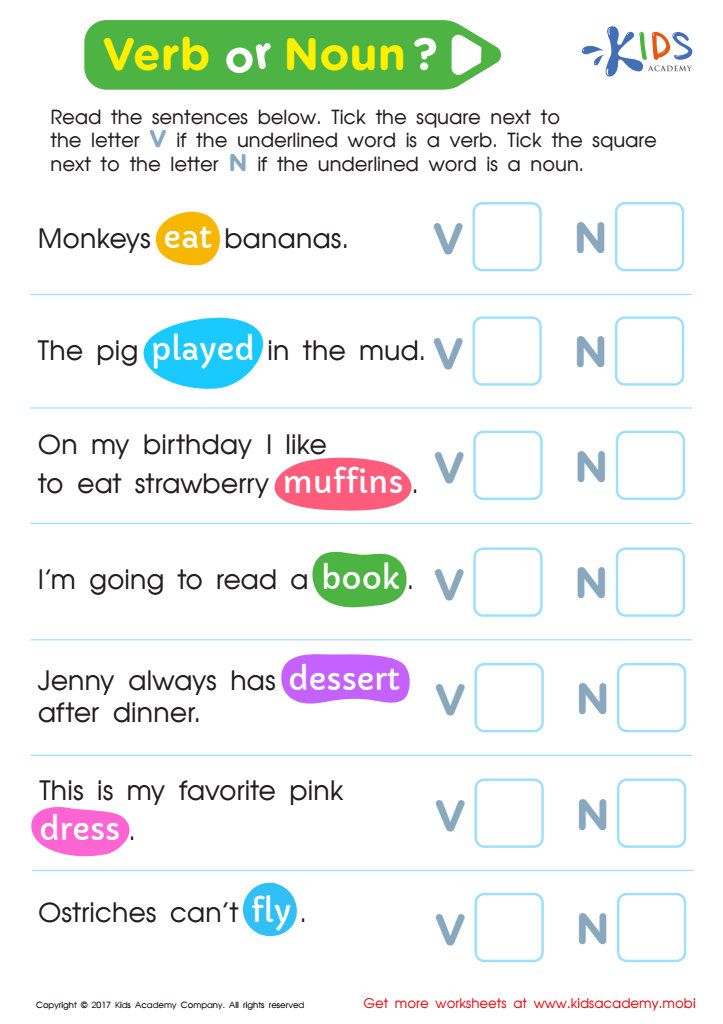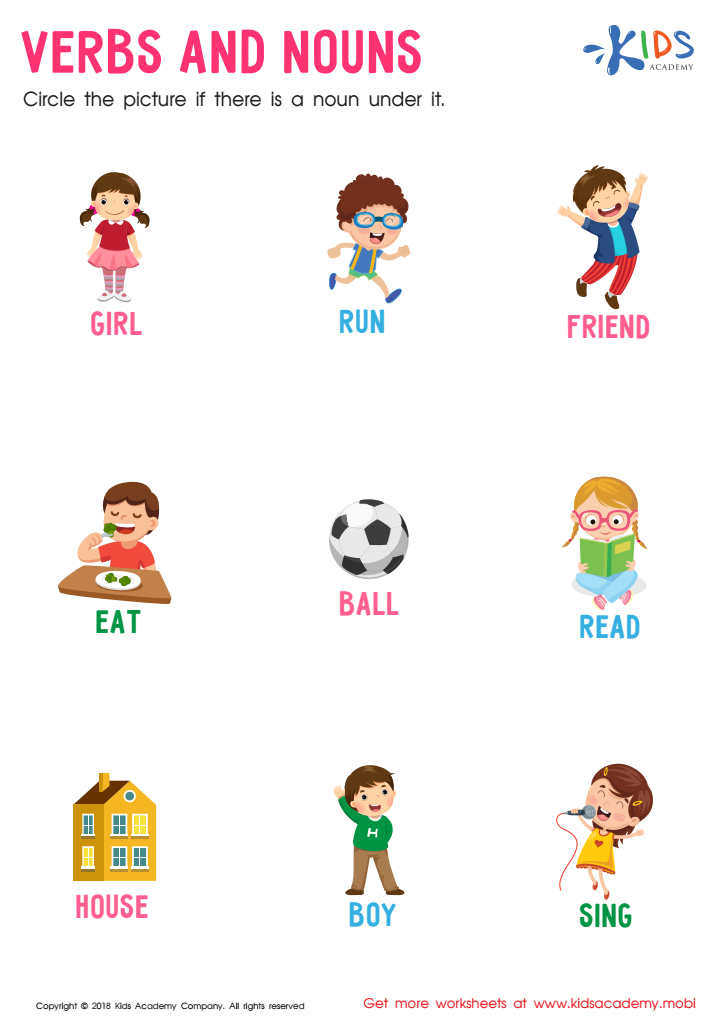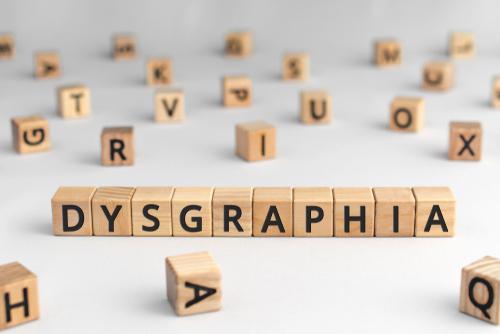Noun identification Normal Writing Worksheets for Ages 5-7
3 filtered results
-
From - To
Enhance your child's writing skills with our Noun Identification Normal Writing Worksheets designed for ages 5-7. These engaging worksheets promote interactive learning while helping young learners recognize and use nouns in a fun and creative way. Featuring a variety of exercises, children will differentiate between people, places, and things, reinforcing their understanding of these essential building blocks of language. Ideal for classroom or home use, our worksheets include colorful illustrations and simple instructions to keep young minds motivated. Foster your child's literacy development and boost their confidence in writing by exploring the world of nouns today!


Noun Search Worksheet


Verb or Noun Worksheet


Verbs and Nouns Worksheet
Noun identification is a fundamental skill for young learners aged 5-7, and it's critical for parents and teachers to prioritize it. Nouns are the building blocks of language, serving as the names for people, places, things, and ideas. Mastering noun identification helps children expand their vocabulary, understand sentence structures, and enhances their overall communication skills.
When children can recognize and use nouns, they begin to make connections between words and their meanings. This understanding fosters reading comprehension, enabling young learners to grasp stories and texts better. Additionally, it lays the groundwork for more advanced language skills, such as using adjectives and verbs effectively.
For parents, engaging in noun identification activities—like reading together, playing word games, or pointing out nouns in everyday life—offers excellent opportunities for bonding while supporting learning. For teachers, incorporating noun identification into lessons can make learning interactive and fun, guiding students towards more effective expression and creativity in writing.
In conclusion, noun identification is an essential part of early literacy that not only enhances children's cognitive development but also nurtures their confidence in using language. By participating actively, both parents and teachers can significantly impact a child's educational journey.
 Assign to My Students
Assign to My Students





















